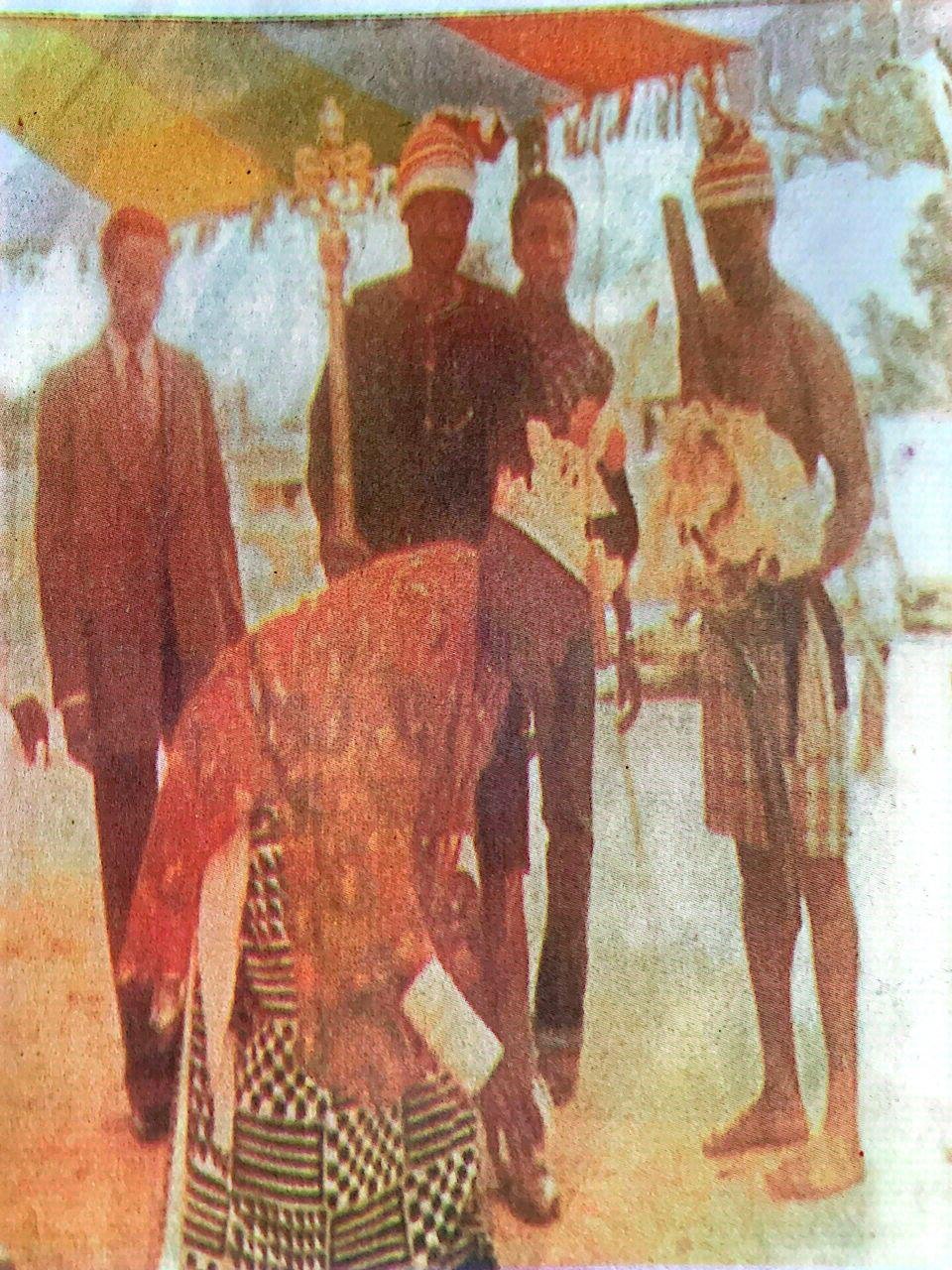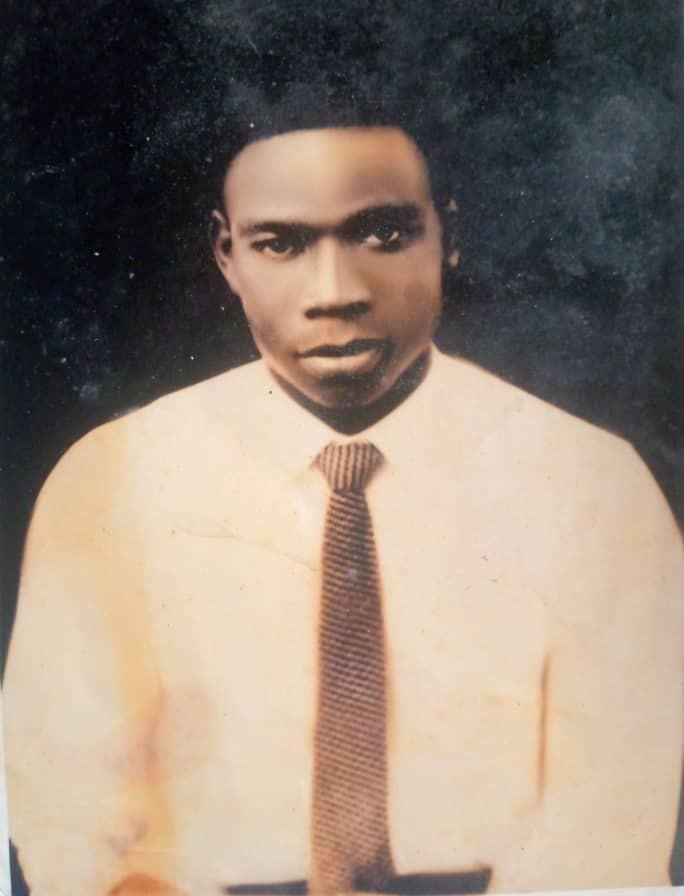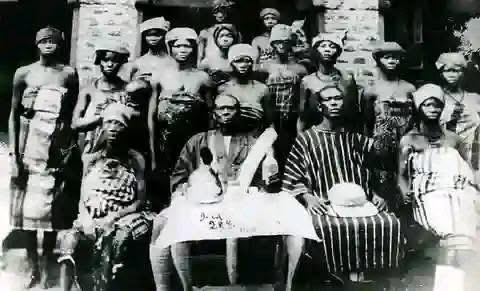
The Ikwu Nne System in Nkporo
In Nkporo, the family system is traditionally organized under the concept of “Ikwu”, which refers to an extended family or lineage group that shares a common ancestry. Ikwu is such an admirable culture that many have lost touch with what it used to be! Some years ago all matrilineal family members
who are present in the village gathered at the oldest man of the family to discuss issues concerning the family. Although some ikwu still hold hers, it paved the way for progress in family unity, peace, and love, and it empowered family members who needed empowerment in any area of their lives. As one Nkporo from any community.
Everybody in Nkporo has Ikwus all over various communities; instead, the Ibe Amala family has Ikwus from Agbaja to Amurie to Elughu to Etitiama to Ndi Nko to Obuofia to Okwoko to Ukwa and even in Abiriba, Edda, and Ohafia, etc.
The Ikwu system plays a significant role in social identity, inheritance, and community relations. Here are some key aspects of the Ikwu system in Nkporo. Nkporo shares ikwu with some neighboring clans like Ohafia, Abiriba, Edda, Afigbo, etc. There are 120 traceable Matrilineal families in Nkporo.
TRACEABLE MATRILINEAGE (IKWU NNE) FAMILIES IN NKPORO
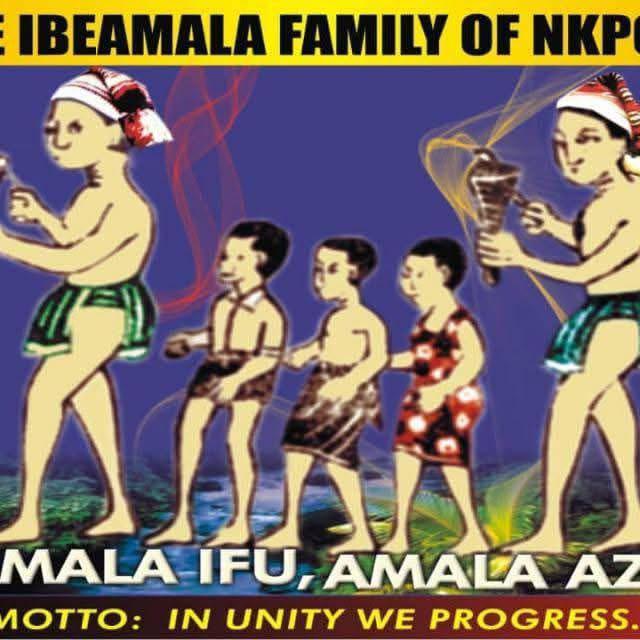
1. Abuba Eze Matrilineal Family
2. Afo Ugbala one Matrilineal Family
3. Agbawodikeizu Eze Matrilineal Family
4. Akajiaku Matrilineal Family
5. Anagha Oko Matrilineal Family
6. Awo Essaga One Matrilineal Family
7. Azuanuka Matrilineal Family
8. Ejuju Orie Matrilineal Family
9. Ekante Oyogho Matrilineal Family
10. Ewa Mkporie Matrilineal Family
11. Eze lyi Matrilineal Family
12. Ibe Akante Matrilineal Family
13. Ibe Amala Matilineal Family
14. Ibe Anuma Matrilineal Family
15. ibe Apai Matrilineal Family
16. Ibe Awo Matrilineal Family
17. Ibe Edem Matrilineal Family
18. lbe Ekworo Matrilineal Family
19. Ibe Enyi Matrilineal Family
20. Ibe Esim Matrilineal Family
21. Ibe Ewuala Matrilineal Family
22. Ibe Ezeaja Matrilineal Family
23. Ibe Ezenta Matrilineal Family
24. Ibe Nnem Orie Matrilineal Family
25. Ibe Odu Matrillineal Family
26. Ibe Ogbagha Matrilineal Family
27. Ibe Ogeogu Matrilineal Family
28. Ibe Oka Matrilineal Family
29. Ibe Okwu Matrilineal Family
30. Ibe Omaka Matrilineal Family
31. Ibe Oraku Matrilineal Family
32. Ibe Udu Matrilineal Family
33. Ibe Udum Matrilineal Family
34. Ibe Uma Matrilineal Family
35. Ibechi Akuma Matrilineal Family
36. Ibechi Awo Matrilineal Family
37. Ibechi Ugo Matrilineal Family
38. Ibeogwu Matrilineal Family
39. Ikechi Matrilineal Family
41 Izizi Orie Matrilineal Family
42. Mgbirima Ola Matrilineal Family
43. Nde Ota Ukwu Matrilineal Family
44 Nde Achama Matrilineal Family
45. Nde Afia Eke Matrilineal Family
46. Nde Agha Okoro Matrilineal Family
47. Nde Alaocha Matrilinea/Family
48. Nde Arunsi Egwu Matrilineal Family
49. Nde Echesaku Matrilineal Family
50. Nde Ef Matrilineal Family
51. Nde Egela Onuwa Matrilineal Family
52. Nde Elemchi Matrilineal Family
53. Nde Eni Matrilineal Family
54. Nde Iroka Matrilineal Family
55. Nde Mgba Matrilineal Family
56. Nde Mgbola Matrilineal Family
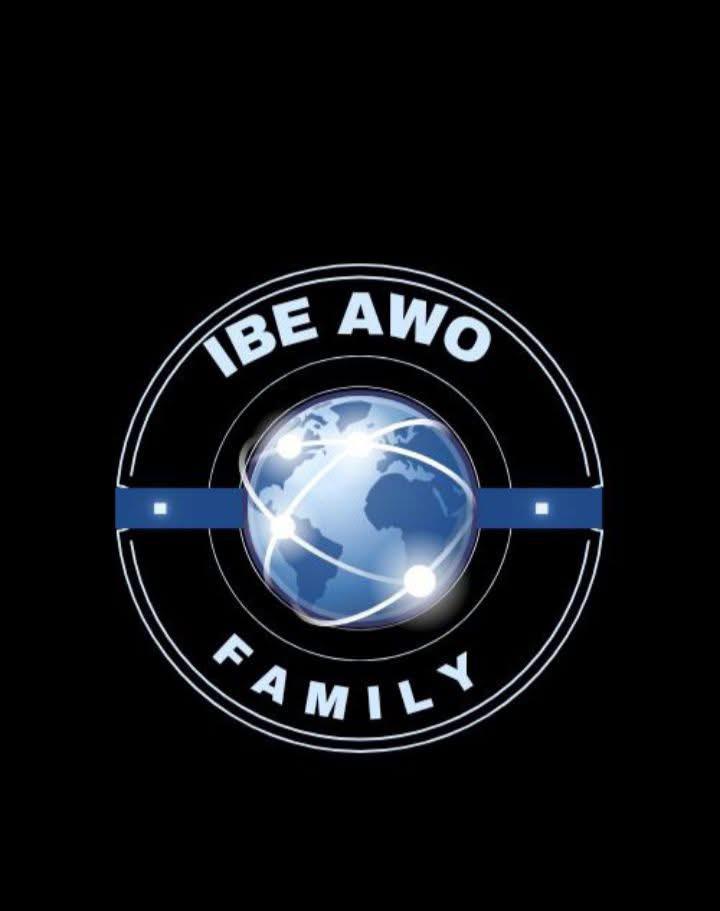
57. Nde Mgbonta Ibe Matrilineal Family
58. Nde Mgbonta Okere Matrilineal Family
59. Nde Nkwola Matrilineal Family
60. Nde Nnem Eke Matrilineal Family
61. Nde Nnem Eke Matrilineal Family
62. Nde Nnem Iko Matrilineal Family
63. Nde Nnem Iko Matrilineal Family
64. Nde Nnem Ori Matrilineal Family
65. Nde Nnem Orie Matrilineal Family
66. Nde Ofia-Ukwu Matrilineal Family
67. Nde Ofoka Eleghe Matrilineal Family
68. Nde Ofuche Matrilineal Family
69. Nde Ogbonne Orie
70. Nde Olukweu Ekwe Matrilineal Family
71. Nde Okpoali Matrilineal Family
72. Nde Okpuma Matrilineal Family
73. Nde Omanne Nkwo Matrilineal Family
74. Nde One Emo Matrilineai Family
76. Nde Orienta Imo Matrilineal Family
77. Nde Orisa Omee Matrilineal Family
78. Nde Orude Akuma Matrilineal Farity
79. Nde Uche Matrilineal Family
80. Nde Usim Obolo Matrilineal Family
81. Obikpe Enna Matrilineal Family
82. Ogbiru Ufie Matrilineal Family
83. Okochi Uyom Matrilineal Family
84. Ome Okorie Matrilineal Family
85. Orienta Momo Matrilineal Family
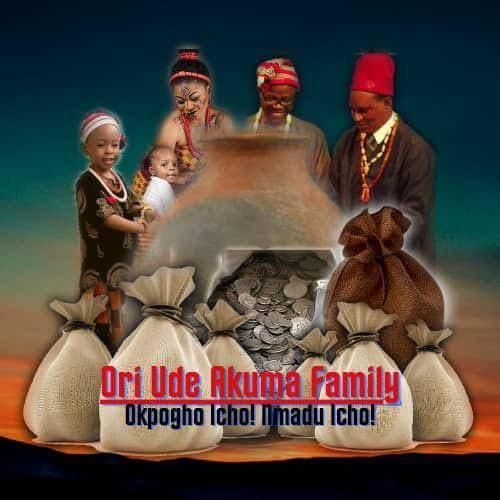
86. Oruda Matrilineal Family
87. Uburu Eke Matrilineal Family
88. Ukanyighi Matrilineal Family
89. Ukelebi Matrilineal Family
90. Umu Aga Matrilineal Family
91. Umu Agana Matrilineal Family
92. Umu Akika Matrilineal Family
93. Umu Akuma Matrilineal Family
95. Umu Endo Matrilineal Family,
96. Umu Enechi Matrilineal Family
97. Umu Eyenaku Matrilineal Family
98. Umu Eze Matrilineal Family
99. Umu Ezima Matrilineal Family
100. Umu Ima Matrilineal Family
101. Umu Mkporie Matrilineal Family
103. Umu Obio Matrilineal Family
104. Umu Ochiagha Matrilineal Family
105. Umu Ogburu Orie Matrilineal Family
106. Umu Okeanwu Matrilineal Family
107. Umu Oken Matrilineal Family
108. Umu Olighu Matrilineal Family
109. Umu Olughu Anya Matrilineal Family
110. Umu Omemgboji Matrilineal Family
111. Umu Omeneoha Matrilineal Family
112. Umu Otutu Matrilineal Family
113. Umu Oturu Obie Matrilineal Family
114. Umu Oyogho Matrilineal Family
115. Umu Ozi Matrilineal Family
116. Umu Ubia Matrilineal Family
117. Umu Umezuruike Matrilineal Famil
118. Umu Erima Matrilineal Family
119. Umu-Owujioba Family
120. Utara Orie Matrilineal
Family Identity – A person's primary family affiliation is determined by their mother’s lineage. This means that children belong to their mother’s Ikwu, not their father’s.
Support and Responsibility – The maternal family plays a crucial role in the upbringing and well-being of individuals. Uncles (mother’s brothers) are particularly significant in guiding and supporting their nephews and nieces.
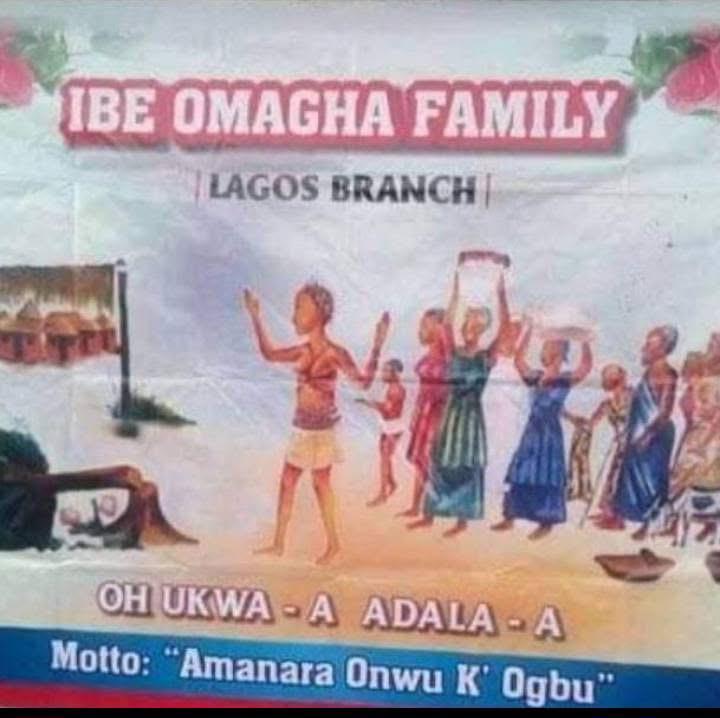
Marriage and Exogamy – Members of the same Ikwu are considered blood relatives and cannot marry each other. Marriages are often arranged outside one’s Ikwu, reinforcing bonds between different lineages within Nkporo.
Matrilineal Structure – The Nkporo society follows a matrilineal system, meaning that lineage is traced, loved, and knitted together across their r mother, even though family names, land rights, and responsibilities are passed down through their father.
Extended Family Network – The Ikwu is made up of multiple nuclear families that trace their origins to a common ancestor. These extended families support each other socially, economically, and culturally.
Collective Responsibility – Members of an Ikwu are expected to support one another in various ways, including financial assistance, marriage arrangements, funeral rites, and conflict resolution. When one member is in distress, others step in to help.
Inheritance and Land Ownership – Land and family property are typically passed down within the Ikwu. The eldest male or a recognized leader often manages these resources on behalf of the group.
Cultural and Religious Practices – The Ikwu plays a role in upholding traditions, including ancestral veneration and participation in community festivals. Certain sacred rituals and responsibilities may be assigned to specific Ikwu within the Nkporo society.
Conflict Resolution – Disputes within an Ikwu are often resolved internally through elders and family meetings before escalating to village-level arbitration. This system helps maintain harmony and unity among families.
Nkporo is very united along Ikwus notwithstanding the community in which their Ikwus come from but somewhat divided along the community line. We as a people should pay keen interest regarding this, and it is pertinent that our people educate their children on the importance of Ikwu, which will strengthen all the community because is in unity that we make progress as a people.
Leave a comment
Your email address will not be published. Required fields are marked *


